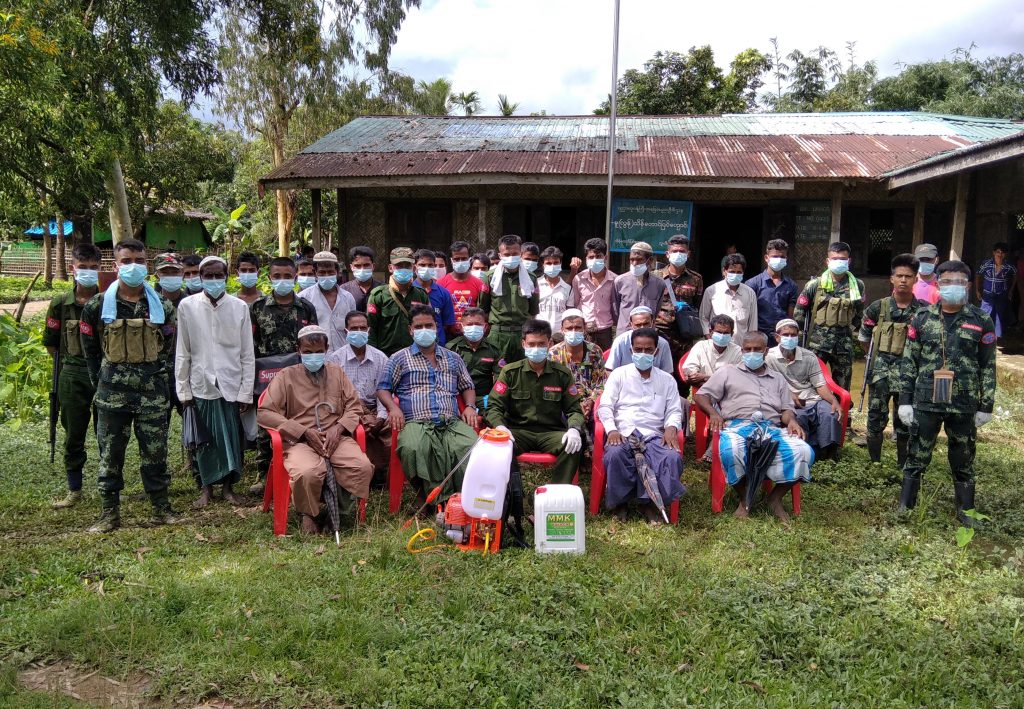[ The Diplomat ] Arakan Army Seeks to Build ‘Inclusive’ Administration in Rakhine State
The armed group’s decision to include Muslim Rohingya representatives in local administration marks a sharp break with a succession of central governments.
Seven months since the military coup in Myanmar, the political wing of the rebel Arakan Army (AA) has significantly expanded its administrative and judicial mechanisms across Rakhine State in western Myanmar, with hundreds of its personnel now effectively administering the region independently of the military junta that rules in Naypyidaw. The group is also attempting to involve the state’s entire population, including the Rohingya Muslims, in the governance of what it hopes will become an autonomous Rakhine State.

The NLD government, led by Nobel laureate Aung San Suu Kyi, called for the Tatmadaw to “crush” the AA, imposed the world’s longest internet shutdown in parts of Rakhine State, and designated the AA as a terrorist organization in response to the conflict.ADVERTISEMENT
It also excluded the AA from its landmark peace conference, blocked humanitarian assistance to conflict-affected people, and canceled the November 2020 national election in large parts of Rakhine State for “security reasons,” preventing an estimated 73 percent of Rakhine State’s voters from casting a ballot.
The cancellation of the election prompted many residents of Rakhine State to shift their support to the AA, which began establishing its own administration across large parts of the state – a process that it has accelerated since February’s coup.
On April 11 of this year, the 12th anniversary of the formation of the AA, Twan Mrat Naing issued a statement recalling that in the early period of its struggle, the AA worked mainly on mobilization and armed resistance to obtain its political objectives, but is now implementing “a governance mechanism with strong institutions for public administrative affairs including administration, judiciary, and public security.”
Khaing Kaung San, founder and executive director of the Rakhine State-based Wan Lark Foundation, said that the people of Rakhine State increasingly rely upon the AA’s administration and dispute resolution mechanisms, increasing trust and support for the AA’s performance after years of discrimination from successive central governments.
On August 1, the United League of Arakan (ULA), the AA’s political wing, officially announced that the people of Rakhine State can now file or submit their legal disputes including over crimes, land issues, and theft to the ULA’s dispute resolution mechanism. It said that it intends to bring justice for all people living in Rakhine State, regardless of race and religion.
During a recent interview with Arakkha Media, Twan Mrat Naing, said that the AA has arranged to pay salaries for those who are working in its judicial department. “We are serious about the Department of Justice,” he said. “We are trying to pay salaries to the staff members of the Department of Justice to ensure justice and to prevent mistakes.”
Most notably, the Arakan Army is also planning to involve Rakhine State’s Rohingya Muslims, the second largest group of the state’s population of 3.2 million, in its administrative roles and the police work, Twan Mrat Naing told Arakkha Media. “We’ve planned for them to participate more in our administrative sectors and police work, and also plan to offer training for them on office work, management and law. We’ll have to conduct this step by step,” he said.
Lar Lar Myar, a prominent Rohingya Muslim from Buthidaung township in northern Rakhine State, told Radio Free Asia that he welcomed AA’s statement, adding that the Rohingya community had never been allowed to participate in civil administration under the NLD administration, or any previous central government.
Lar Lar Myar also said that a liaison office for the Rohingya and AA had been established, adding that the state judiciary under the AA has “acted fairly, without discrimination on the basis of race or ethnicity.”
Khaing Kaung San said that Rohingya communities were being “provided protection by the AA with regard to their well-being and health care. Not only in the AA-controlled areas, but also in other places including Sittwe, communication between the two communities exists.”
In the AA’s pursuit of its dream of an autonomous Arakan polity, an inclusive approach also makes pragmatic sense. Unlike previous rulers of the state, who have pitted its ethnic communities against one another, the Arakan Army’s strategy of including community leaders from minority communities, especially Rohingya, into the administration of the state increases the likelihood that it will succeed in maintaining stability and peace.
Kyaw Win, founder and executive director of Human Rights Network for Burma, said that the lives of the Rohingya have gotten steadily worse under a succession of central governments, and that they would no doubt welcome any AA administration that accepts them as legitimate members of the family of Arakan. “AA should prove that they are different by their actions, and I believe that they are doing so,” he said.

